Financing Natural Infrastructure: Exploration Green, Texas
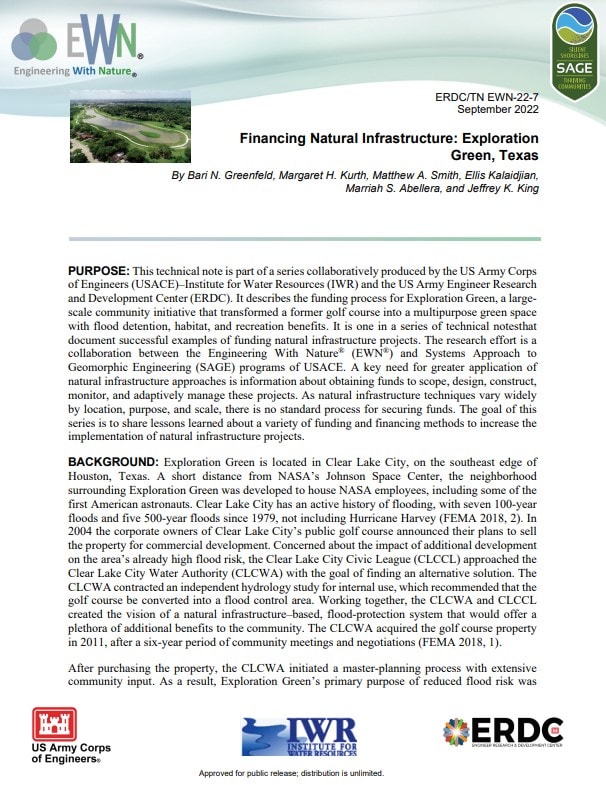
This technical note is part of a series collaboratively produced by the US Army Corps of Engineers (USACE)–Institute for Water Resources (IWR) and the US Army Engineer Research and Development Center (ERDC). It describes the funding process for Exploration Green, a large- scale community initiative that transformed a former golf course into a multipurpose green […]
Wave attenuation of coastal mangroves at a near-prototype scale
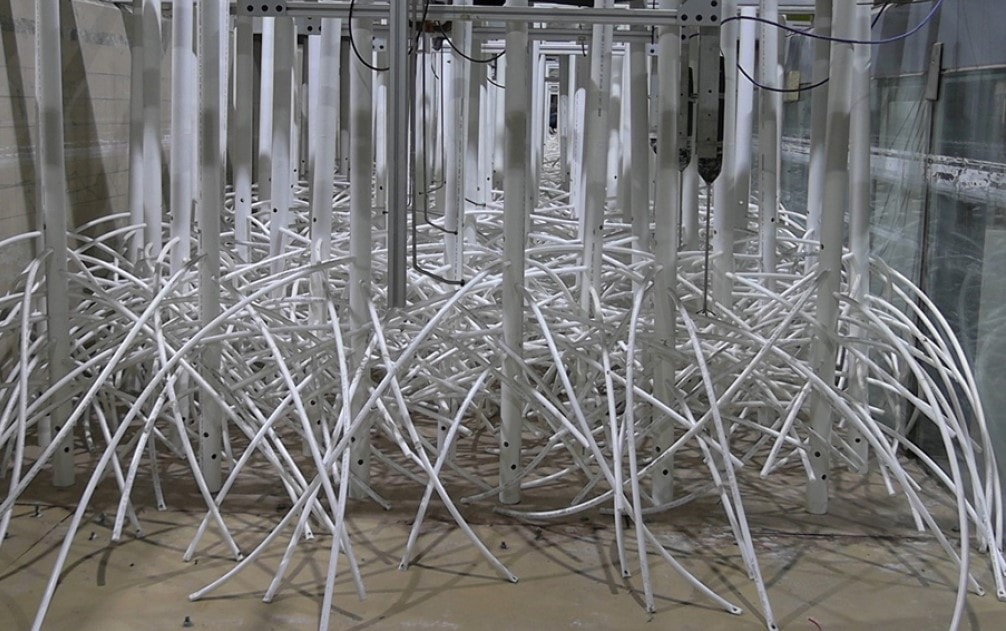
A physical model study investigating the dissipation of wave energy by a 1:2.1 scale North American red mangrove forest was performed in a large-scale flume. The objectives were to measure the amount of wave attenuation afforded by mangroves, identify key hydrodynamic parameters influencing wave attenuation, and provide methodologies for application. Seventy-two hydrodynamic conditions, comprising irregular […]
Planning and Implementation of Environmental Pool Management at Lake Red Rock, Des Moines River, Iowa
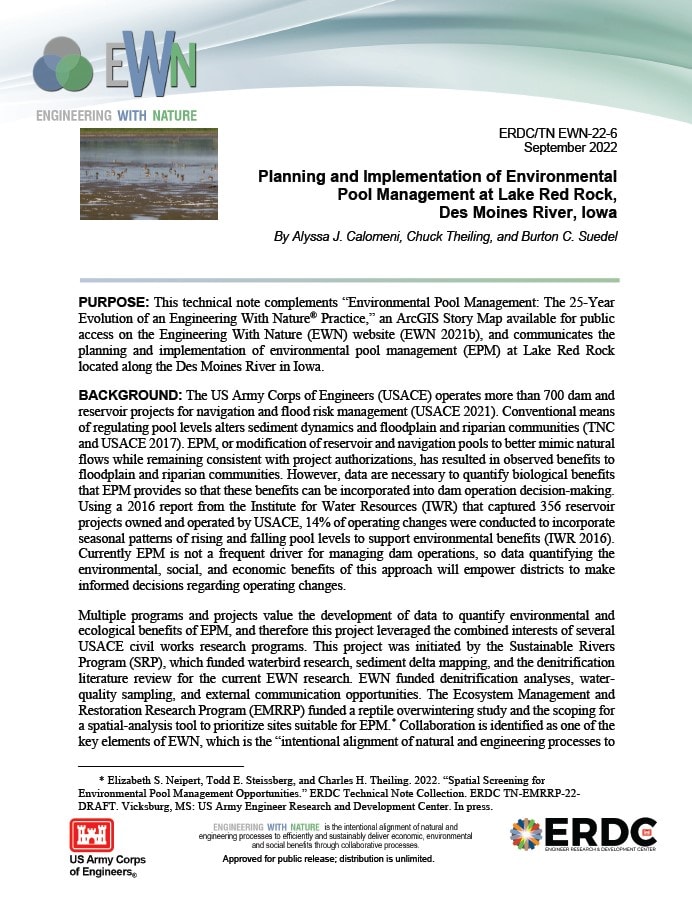
This technical note complements “Environmental Pool Management: The 25-Year Evolution of an Engineering With Nature® Practice,” an ArcGIS Story Map available for public access on the Engineering With Nature (EWN) website, and communicates the planning and implementation of environmental pool management (EPM) at Lake Red Rock located along the Des Moines River in Iowa. Read […]
Engineering coastal structures to centrally embrace biodiversity
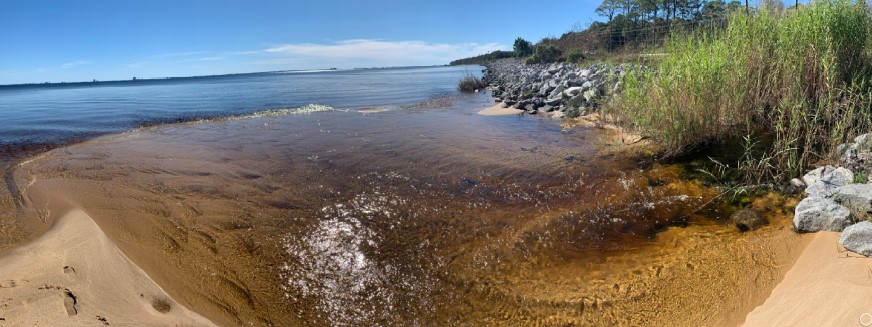
Global environmental factors (e.g., extreme weather, climate action failure, natural disasters, human environmental damage) increasingly threaten coastal communities. Shorelines are often hardened (seawalls, bulkheads) to prevent flooding and erosion and protect coastal communities. However, hardened shorelines lead to environmental degradation and biodiversity loss. Developmental pressures that are growing in scale, scope, and complexity necessitate the […]
Financing Natural Infrastructure: South Bay Salt Pond Restoration Project, California
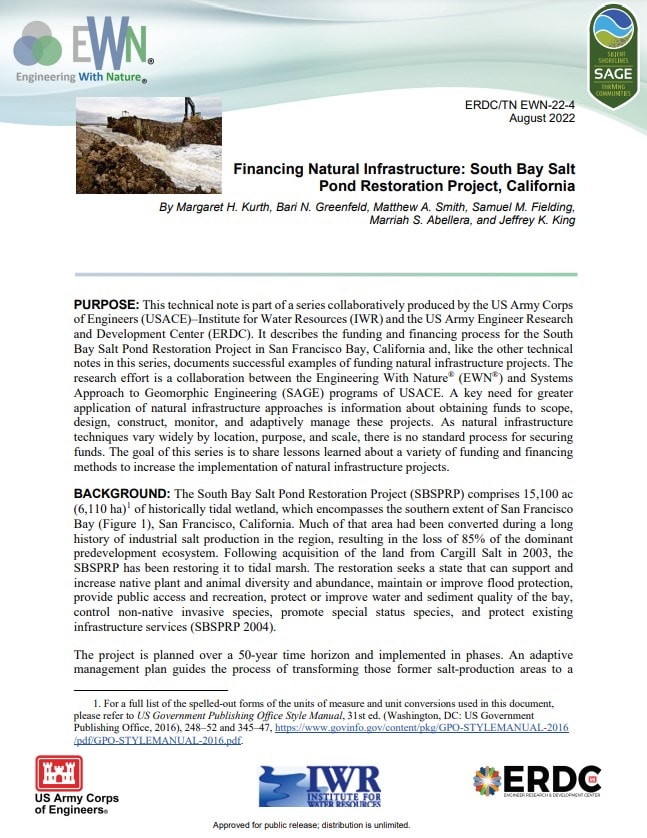
This technical note is part of a series collaboratively produced by the US Army Corps of Engineers (USACE)–Institute for Water Resources (IWR) and the US Army Engineer Research and Development Center (ERDC). It describes the funding and financing process for the South Bay Salt Pond Restoration Project in San Francisco Bay, California and documents successful […]
Remote Sensing Capabilities to Support EWN® Projects: An R&D Approach to Improve Project Efficiencies and Quantify Performance
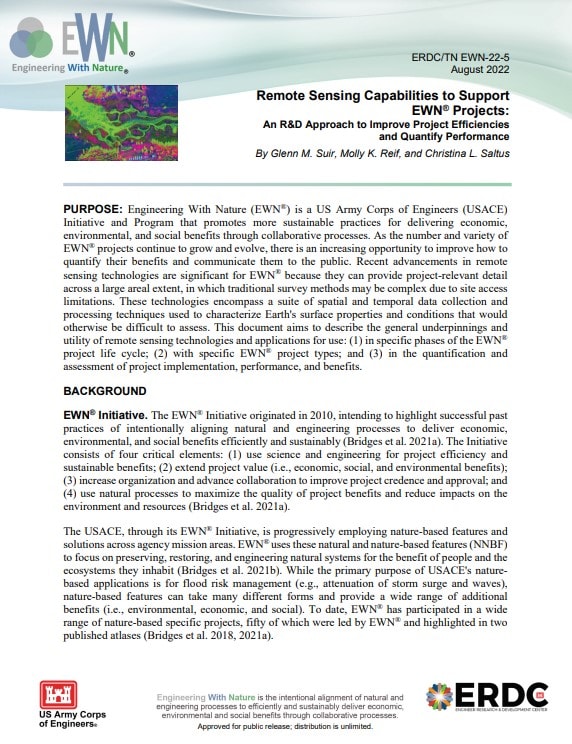
This document aims to describe the general underpinnings and utility of remote sensing technologies and applications for use: (1) in specific phases of the EWN® project life cycle; (2) with specific EWN® project types; and (3) in the quantification and assessment of project implementation, performance, and benefits.
Swan Island: Monitoring and Adaptive Management Plan
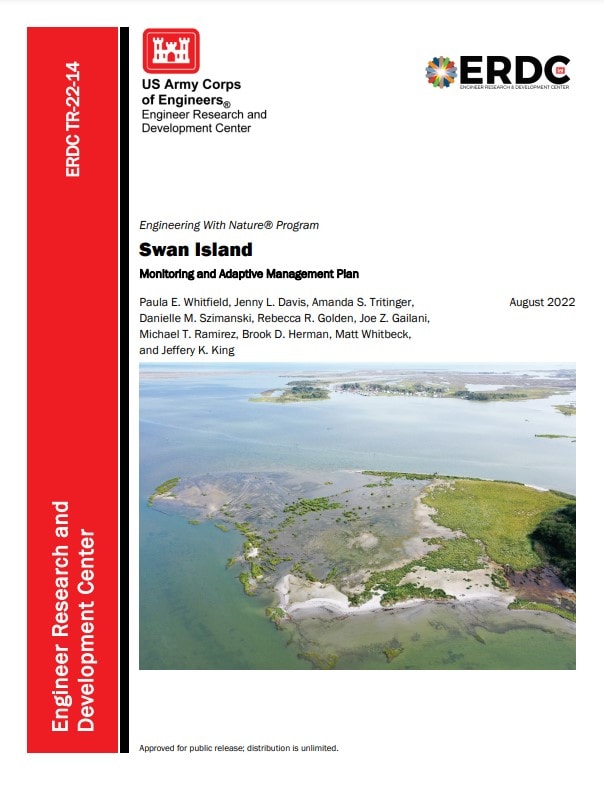
ERDC Technical Report The monitoring and adaptive management plan (MAMP) used to document the monitoring parameters and procedures for Swan Island allows for the collection of quantitative data on the performance of the feature as a wave break for the town of Ewell. This type of plan can serve as an example for other scales, […]
Realizing Multiple Benefits in a Southeast Louisiana Urban Flood Control Project through Application of Engineering With Nature® Principles
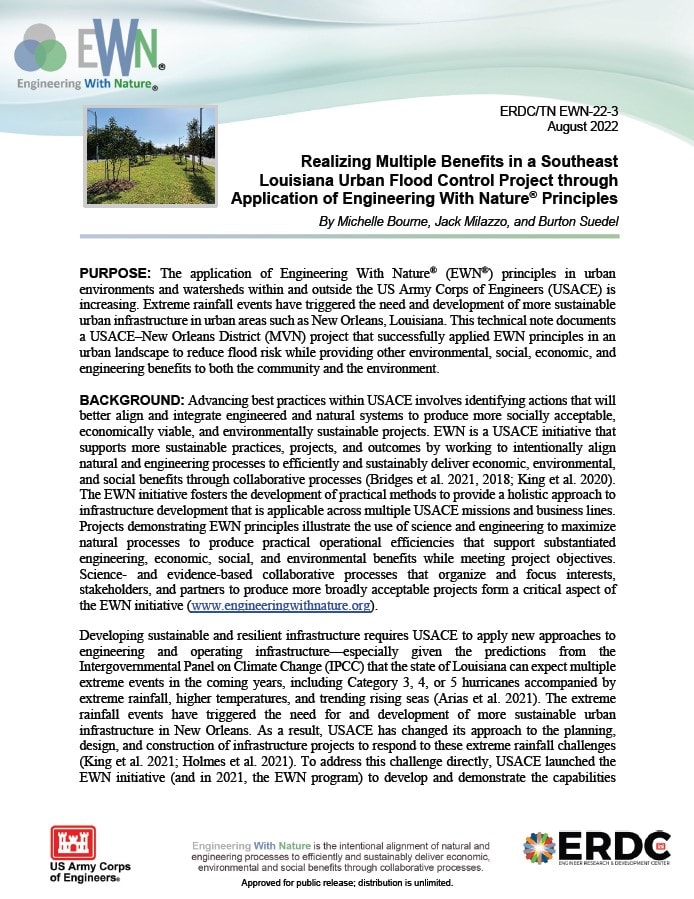
ERDC EWN Technical Note This technical note documents a USACE–New Orleans District (MVN) project that successfully applied EWN principles in an urban landscape to reduce flood risk while providing other environmental, social, economic, and engineering benefits to both the community and the environment.
The Forefront : A Review of ERDC Publications, Summer 2022
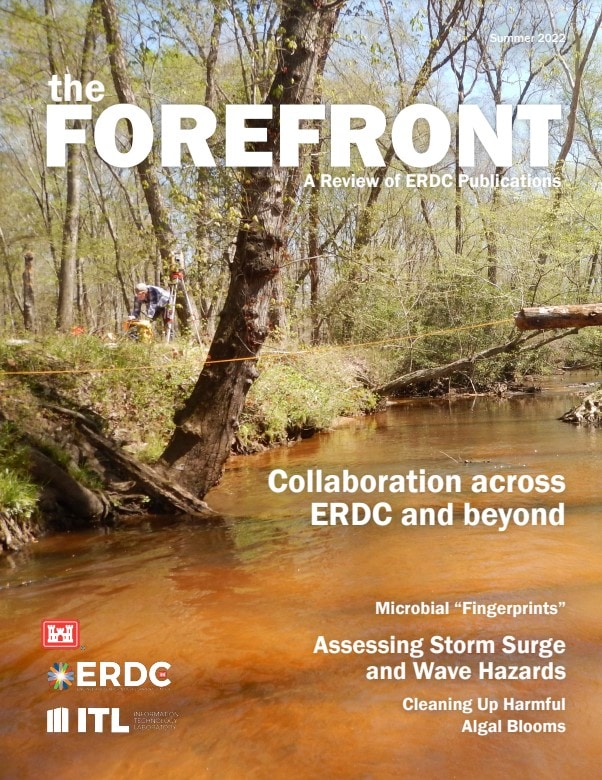
ERDC ITL Special Report This issue of The Forefront highlights collaborations across ERDC and beyond through a collection of articles written by the ERDC Library. EWN had the top three most downloaded documents in all of ERDC this year (page 10)!
The Application of Engineering With Nature® Principles in Colorado Flood Recovery
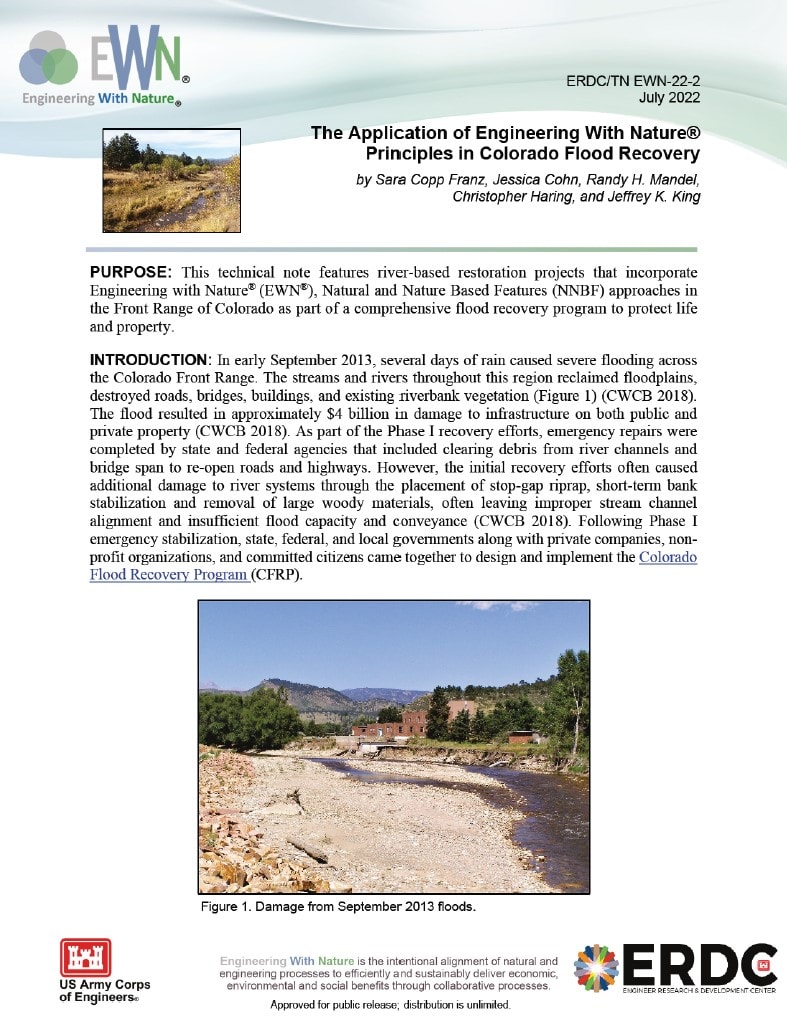
ERDC EWN Technical Note This technical note features river-based restoration projects that incorporate Engineering with Nature® (EWN®), Natural and Nature Based Features (NNBF) approaches in the Front Range of Colorado as part of a comprehensive flood recovery program to protect life and property.

